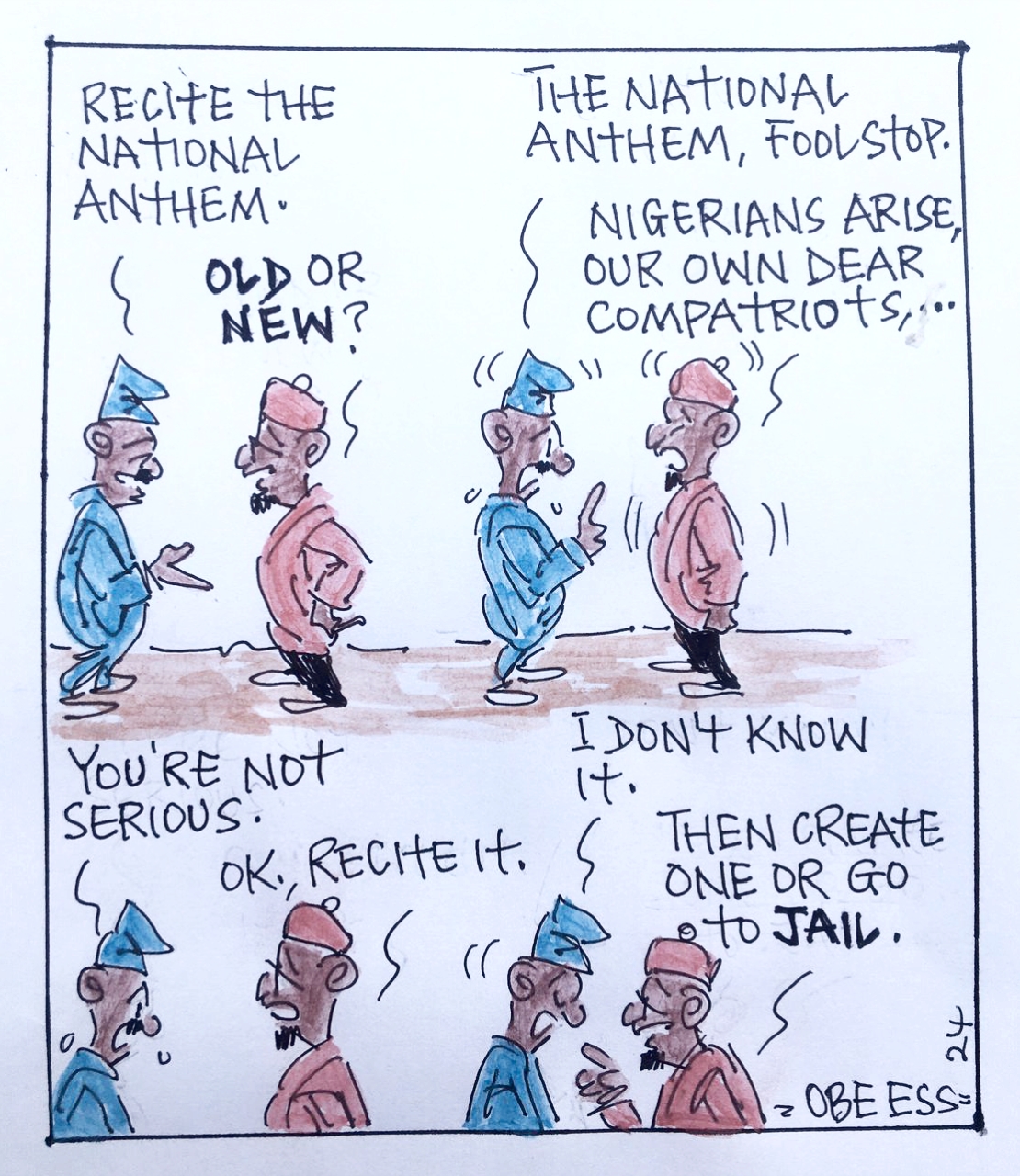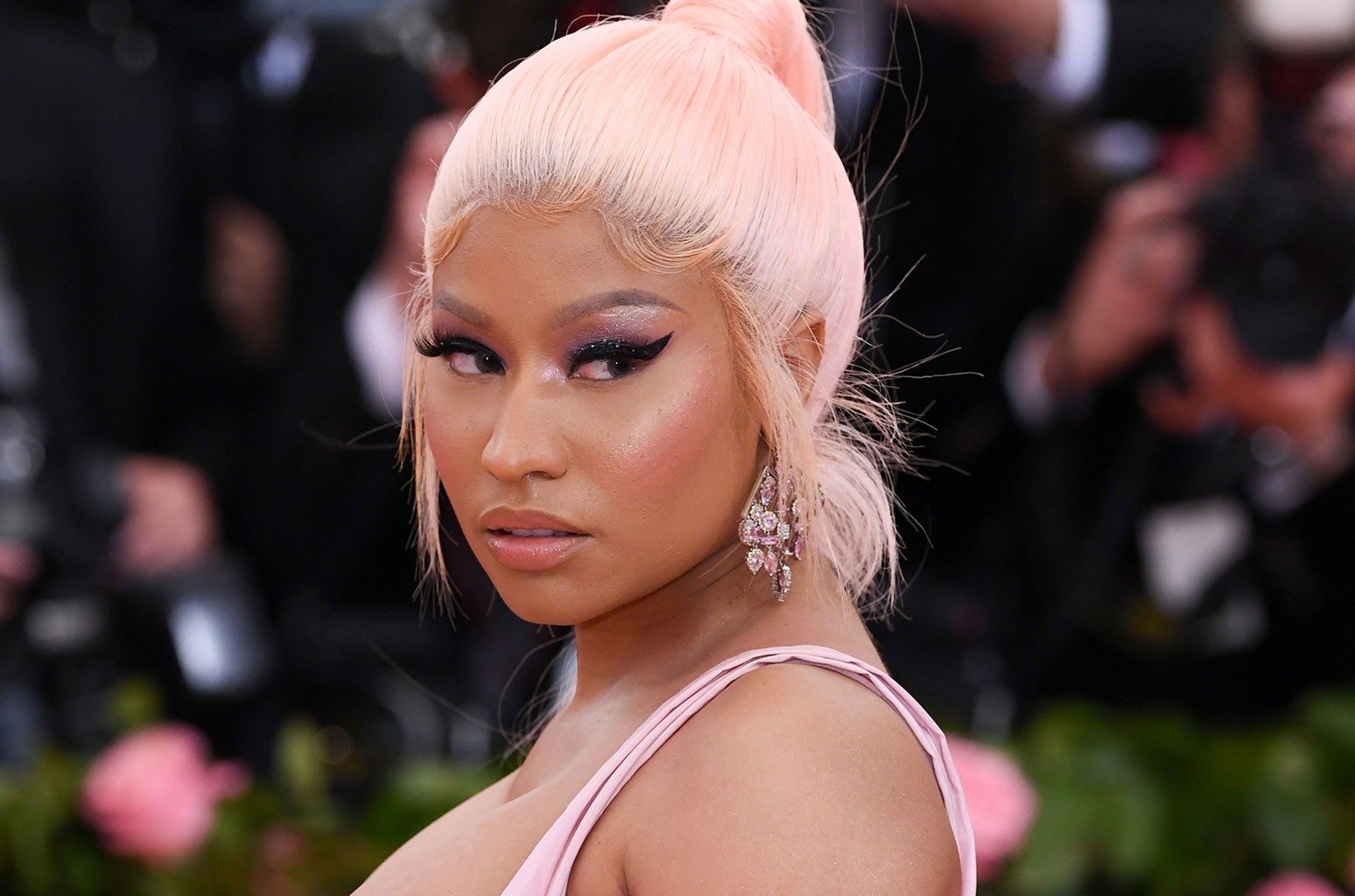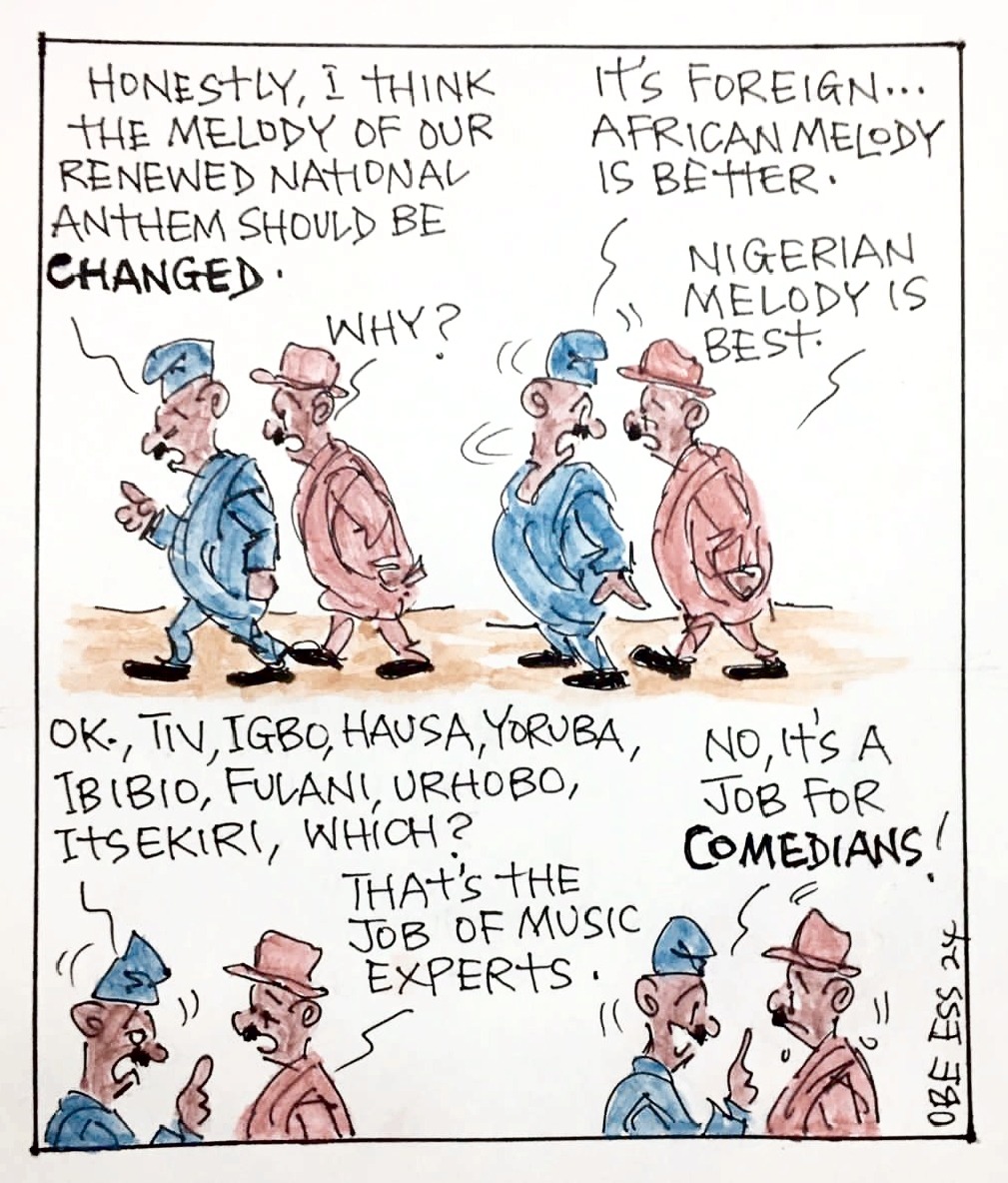
Tag: National Anthem
-
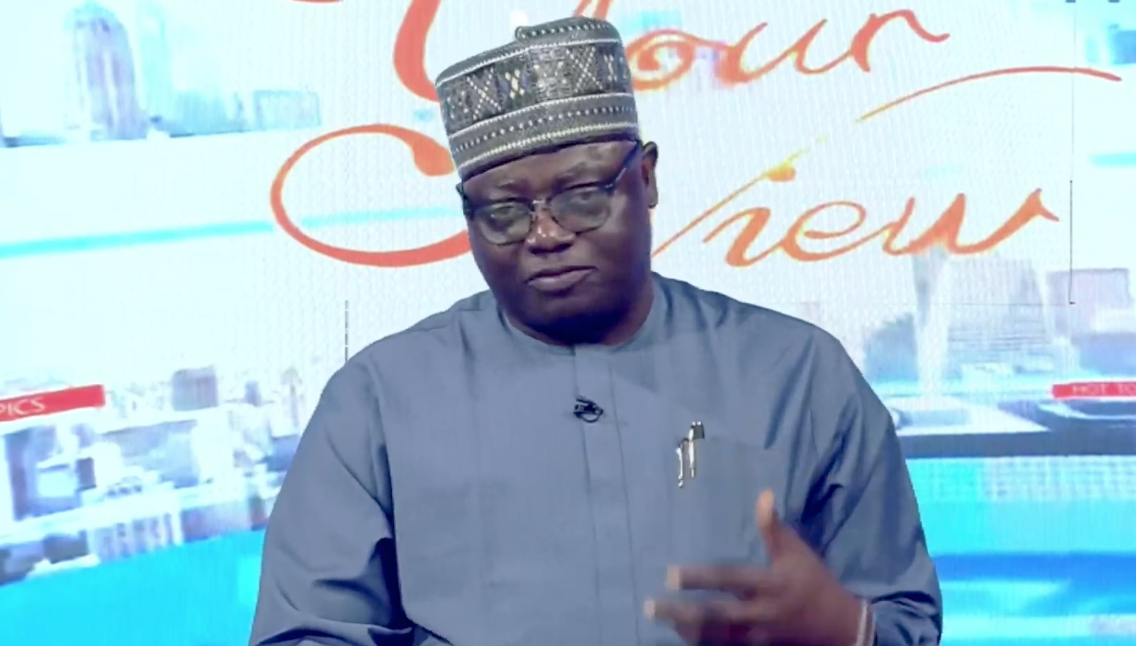
Real reason we want to change melody of new national anthem – NOA DG
Director General of the National Orientation Agency (NOA), Mallam Lanre-Issa Onilu has again reiterated the commitment of the federal government to change the melody of the newly reintroduced national anthem.
TheNewsGuru.com (TNG) reports Mallam Onilu made this known on Tuesday while stressing that there is a disparity in the usage of the newly reintroduced national anthem.
“If you go to events today and you see the military band there, the way they play the national anthem is different from when you see the police band, and it is also different from when you see the civil defence band.
“It is not done that way. There must be an official melody, which we are working towards,” the NOA DG said when he featured in Your View TVC television programme on Tuesday.
According to Onilu, the melody of the newly reintroduced national anthem would be fine-tuned from the official melody of 1960 to reflect contemporary Nigerian music of today.
“When this particular anthem was done, they called for entries. During the entries, somebody emerged. The entry was opened to anybody. It just happened by accident that it was a foreigner’s own that was picked. Many Nigerians also submitted entries.
“So, after you have the lyrics, you now create the official melody for it. There was an official melody that was created for it during independence. But this time around we have brought back the lyrics. Are we going to still use the official melody of 1960? No. Because Nigeria has moved.
“If you look at our music these days, you will see that Nigeria is a leading light all over the world. Our music is defined by certain compositions in terms of percussion. So, we are going to call for entries for a national melody for the new national anthem. We are going to have a national melody,” he said.
Speaking on when the new melody would be introduced, Onilu said: “We have produced the national anthem in handheld copies that we will distribute all over the nation. In the coming weeks and months, you will begin to see this. After that, we will then come out with the new melody”.
-

The fault is not in our national anthem, but poor leadership! – By Tony Eke
In the past one year of the 10th Senate, no other bill was swiftly passed like the one that reverted Nigeria to the old National Anthem after presidential assent. Without inputs from a broad spectrum of the populace, the Senate resurrected the old anthem which was consigned to the dustbin of history forty six years ago.
The reason adduced by the Senate leader, Senator Opeyemi Bamidele and his colleagues, is that the substituted National Anthem does not inspire a large dose of patriotism in Nigerians unlike the first one which gained popularity because it sought to bond the people despite their ethnocultural diversity. No previous research has validated such a conclusion, however.
While an interrogation of the issue shows that the Senators were covertly motivated by the Presidency rather than their collective conviction, not many Nigerians shared their viewpoint that making a change to the national anthem would elicit greater patriotism and loyalty from the citizens. On a comparative basis, the one we were using until now is equally good like the first anthem as both exhort Nigerians to love their country and make necessary sacrifices for its survival.
While the displaced version opens with ‘Arise O Compatriots’ as a clarion call to millions of citizens to seek the best for their fatherland, the newly adopted ‘Nigeria We Hail Thee’ seeks to promote ‘brotherhood’ in the fourth stanza in contrast with the preceding stanza which acknowledges that ‘though tribes and tongue may differ’.
As far as majority of people are concerned, changing the anthem should not preoccupy the Senate’s agenda at this point in time. There are numerous pressing problems it should prioritise and tackle through legislation. Even if Nigeria decides to officialise an annual adoption of a new anthem, such a step cannot alter even the minutest encumbrance to national development. We are well aware that the progressive retardation of Nigeria is not because our national anthem is bereft of philosophical depth nor is it due to its occasional poor rendition by impoverished hungry citizens at public ceremonies.
Yes, a national anthem is an indispensable possession of a country, and on most fleeting occasions of its musical performance, it imbues the citizens with patriotic fervor, creates a sense of national unity, and bolsters pride of belongingness to a defined territorial space. But it simply ends at that level. If our collective experience is anything to go by, neither of the two anthems has had profound impact on the governance system of Nigeria since its attainment of nationhood.
Thus, the growing criticism with subdued rejection of the imposed anthem is not only justified but has also provoked the refusal of many Nigerians to recite the old anthem. While the former Minister of Education, Dr. Oby Ezekwesili and Activist, Aisha Yesufu, are driving the resistance, countless citizens without visible identities also belong to the emerging movement. But they cannot be reprimanded in whatever form since it’s within their fundamental rights to accept or reject a government policy they deem as unacceptable for obvious reasons. After all, no aspect of the 1999 Constitution, as amended, compels a citizen to accept an ideology or a concept that’s inconsistent with his belief system or worldview.
Somehow, the Senators’ action partly portrayed the seeming proclivity of the political elites for muddling up issues when they broach less desirable options to problems that require well-thought-out solutions. It suggests that our distinguished lawmakers may not be so conversant with the dominant ills that our society is enmeshed in.
Even if the pro-reversion minority group led by President Bola Tinubu has had its way, it’s pertinent to ask two questions at this juncture: To what extent did brotherhood in the first national anthem unite Nigerians between 1960 and 1978? If the so-called brotherhood was not a facade, why was the country plagued by ethnic animosity, tribal bigotry, political intolerance, electoral malpractice, bribery and corruption, and the putative Northern hegemony, all of which culminated in the outbreak of the Civil War?
Assuming but without conceding that a number of countries may want to replace their anthems for reasons they deem so desirable, the Senate’s action is denuded of cogency. It’s specious, purely sentimental and does not resonate with the endless demands for practical solutions to our existential problems. Unlike bills and resolutions that the Senate enacts and amends at will, our anthem ought not to be changed perfunctorily since they are products of the socio-cultural and historical milieu which underscore the differences in their lyrical and thematic perspectives.
For instance, the inclusion of brotherhood in the first anthem conveys Nigeria’s heterogeneity which is evident in the polar divides of the North and South since 1960. It was therefore compelling for the departing colonialists to create a word that could instil unity and possibly tame centrifugal tendency from rearing its head. Years later, the adoption of the second anthem in 1978 reflected the authoritarian disposition of the military administration, headed by the then Gen. Olusegun Obasanjo, which in its avowal of unity enforcement in the first post-Civil War decade, wanted to stave off the causative circumstances of the detestable Nigerian fratricidal war.
If they were really serious the Senators should have visited their respective districts and tell Nigerians how the anthem replacement will make them better citizens and also reform the mindset of political leaders to address unemployment, hunger, and food insecurity, devalued naira and runaway inflation, mass poverty and uncontrolled population growth. Without doubt, our compatriots would not key into the initiative if changing the national anthem cannot rescue Nigeria from the terminal virus of poor leadership, rid it of endemic corruption and electoral brigandage, and inspire real unity to the extent that the pretentious belief in ‘One Nigeria’ will be a thing of the past.
What Nigeria needs at the moment is good governance which a combination of good legislation and policies initiated by the Executive arm could birth, all things being equal. The Senate should take a holistic view of Nigeria’s dysfunctional state and introduce a comprehensive bill that will restructure the country to guarantee fiscal federalism. A sensitisation of the masses to their rights, duties, and obligations will enable citizens to hold those entrusted with the country’s political destiny accountable.
Building a country does not require periodic replacement of its national anthem, but a conscious articulation of a broad-based agenda and renewal of national vision to accord with the reality of the times. Our growth retardation on all fronts can be addressed by taking the right steps to alter our prolonged plaintive narrative. There’s an analogy between an immortal line in Shakespeare’s Julius Caesar and our peculiar pathetic situation because the protracted woes of our national life are not rooted in the Nigerian anthem but in poor leadership which emerges seasonally from amongst us.
TONY EKE, a journalist, is based in Asaba, Delta State capital.
-
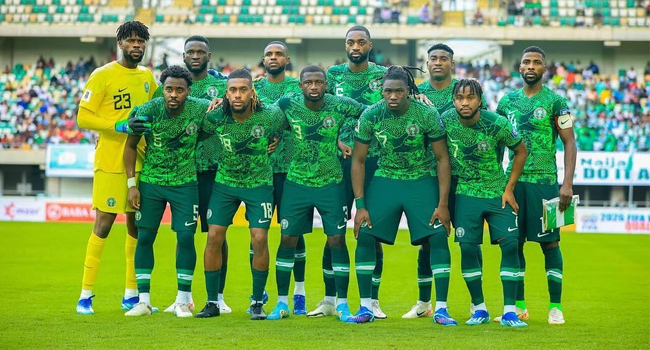
BREAKING: Confusion as Super Eagles recite old National Anthem before match against Benin
The old national anthem of Nigeria was played and recited by the Super Eagles of Nigeria before their 2026 FIFA World Cup qualifier against Benin Republic on Monday.
TheNewsGuru.com (TNG) reports the Super Eagles are currently taking on Benin at the Felix Houphouet-Boigny Stadium in Abidjan, Côte d’Ivoire with their 2026 World Cup qualifying campaign in a precarious situation.
The Super Eagles, expected to soar higher against Les Guépards, had drawn their three previous games, and are in fifth place on the 2026 World Cup qualifier log.
When the Super Eagles lined up for their Monday’s encounter against Benin Republic, who are in third place, the old national anthem, “Arise O Compatriots” was played in the stadium to the surprise of many.
The Nigerian government had passed a new law returning the nation to “Nigeria, We Hail Thee” as the reigning national anthem.
It was not clear at the time of filing this report where the error came from; whether the error is from FIFA, the Nigeria Football Federation (NFF) or from stadium sound engineers.
However, reactions have trailed the usage of the old national anthem for the Benin vs Nigeria 2026 World Cup qualifier.
Read reactions below:
Before the Nigeria match started, FIFA decided to play the previous National Anthem. Is FIFA not aware of the recent changes of our national anthem? pic.twitter.com/Hg874KYjvg
— Imran Muhammad (@Imranmuhdz) June 10, 2024
The Super Eagles of Nigeria sang the old national anthem instead of the new one 😂
This is laughable and shows the confusion coming from this government#SoarSuperEagles YBNL Erik Ten Hag Aunty Ramota
— Realtuanta (@realtuanta) June 10, 2024
Nigeria Dey play match, na old national anthem them play for them…
What a shame!!!!
— The Rosy PRODIGY 🌹 🏳️🌈 (@_TChukwuemeka) June 10, 2024
Why are they still reciting the “Arise O Compatriot” national anthem at the lineup
— Igoche Rock (@RockMan_IG) June 10, 2024
Why disrespect our country with the outlawed national anthem…. This is both embarrassing, distasteful and unfortunate. #SoarSuperEagles
— Jerry Research (@Jerry_Research1) June 10, 2024
-
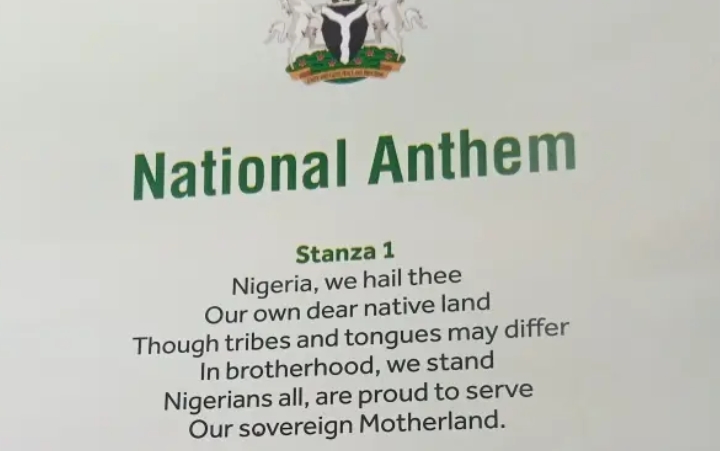
Nigeria set to get new National Prayer as NOA presents official version of new National Anthem
Director-General of National Orientation Agency (NOA), Malam Lanre Issa-Onilu on Wednesday in Abuja presented the official version of the new National Anthem.
Issa-Onilu, said the presentation of the official version became necessary, because of wrong version being circulated on the social media, and the demand for clarification for NOA’s Community Orientation and Mobilisation Officers across the country.
According to him, the new anthem is part of the National Identity project of the Tinubu administration, and also one of the seven programmes for the institutionalisation of national values.
He further explained that the anthem is one of the country’s national symbols, which NOA as custodian, is mandated to promote and preserve its integrity for national cohesion, unity and a sense of patriotism.
“Today’s event is to present the official version which will clear all doubts about the correct lyrics as contained in the Act signed by the President.
“We call the attention of Nigerians to the line three (3) of the first stanza, which reads: “Though tribes and tongues may differ’ Note that the words “tribes” and “tongues” are in plural.
“We want you to also note that line five (5) of the first stanza reads: Nigerians all, are proud to serve”. The word “are”, not “and” is correct.
“On the official instrumental and audio rendition, the NOA will call for entries for the production of an authentic Nigerian melody, taking into cognizance, the indigenous instrumentation of the Nigerian people.
“The effective date for the entries and the procedure will be announced through NOA channels in the coming week,” Issa-Onilu said.
Meanwhile, concerning the National Pledge, the NOA boss said the Agency would follow the official procedure to obtain approval for the adoption of a new National Prayer.
He, however, stressed that the National Pledge remains valid and operational.
“The NOA’s values orientation programmes as envisioned under the Federal Government’s National Values Charter, seek to define the Nigerian citizens’ shared identity, with clearly stated commitment of both leaders and followers.
“The Charter, operating under the “7 for 7” social contract, will guide our national values for a reciprocal commitment of leaders and citizens towards building a nation we all can be proud of.
“NOA will be working with a wide spectrum of stakeholders to ensure citizens’ buy-in of the National Anthem and sing it reflectively with a sense of pride,” Issa-Onilu maintained.
Meanwhile, the Director-General of National Broadcasting Commission, Mr Charles Ebuebu said he would use the mechanism and platform of his Commission to promote the learning and singing of the anthem.
Similarly, the Director-General of Advertising Regulatory Council of Nigeria, Dr Olalekan Fadolapo congratulated Issa-Onilu and pledge the Council’s full support for NOA to deliver on its mandate
Also speaking, the General Secretary of Nigerian Union of Teachers (NUT), Dr Mike Ike-Ene, represented by the State Secretary, Mrs Margaret Jethro, maintained that teachers remain instrumental to the learning of the new anthem.
Ike-Ene restated the commitment of all members of NUT across the country to ensuring that all pupils and students learn and know how to recite the new national anthem.
-

Charting the future from the past – By Pius Mordi
By Pius Mordi
Nobody has really explained to Nigerians why ‘Arise oh compatriots’ was jettisoned as the national anthem in favour of ‘Nigeria we hail thee’. Not President Tinubu himself or the National Assembly which railroaded the passage of the Bill effecting the change in what by the standard of the federal lawmakers can be classified as the speed of light.
To be honest, I have never really been enamoured by the words of the now dropped anthem. I always felt it did project the virtues of nation building on justice, freedom and equity. But it was the last of the issues that matter to the people at this material time. With unmitigated hunger, real hunger that is quietly impacting on the health of children and the less privileged, the return of the old script serves no purpose in addressing the challenges facing Nigerians.
Perhaps it is a harbinger of a probable revisit of the structure of the First Republic which is the product of a negotiated structure. It is a real federal arrangement that spurred the development of the various regions in a competitive but healthy manner.
Since the coming of Muhammadu Buhari, there has been a growing agitation for a return to the structure of the past. There is seeming unanimity that the coming of the military in 1966 was the most devastating and retrogressive measure to the growth of the country, only second to the civil war. The dissolution of the federal system as the country’s founding fathers had negotiated it set the stage for the continous balkanisation of Nigeria in the name of state creation into unviable sub-national entities. Theoretically, the states adopted the former regions’ status as the federating units. But in reality, they are units of a lumbering, ineffectual and overbearing unitary state. The worst of the incongruous arrangement was the introduction of local government councils as the third tier of government. Their creation was initially touted as designed to bring governance closer to the people. Perhaps. But the military politicised the creation. It became an instrument for executing a regional agenda of domination, unfair distribution of resources and a platform for federal overreach. The unnegotiated 1999 constitution that ushered the Fourth Republic put a legal seal to the daring act of dismantling the basis for a federal system. After creating additional states under which the old Kano State was split into two, the military gave the new Kano 44 local government areas while the new Jigawa State had 27. Meanwhile, Lagos which had 20 at the time of old Kano and despite losing its status as the federal capital remained the melting pot of demographic expansion was left with the 20 councils. This is just an illustration of the injustice, inequity and inequality that characterised the exercise under military rule. In a show of impunity and to make it almost impossible to redress the wrong, all the local government areas were named in the constitution. In effect, it would require the tortuous process of amending the constitution for new councils to be created.
The sudden and unorthodox manner the national anthem was jettisoned has got some stakeholders thinking that maybe Tinubu is seeking to chart a new course for the country by returning to the past. If that is the case, there are lots of fundamental issues to revisit and adopt from the First Republic. The 66 powers reserved for Abuja on the Legislative List have given the federal government too much functions and powers than it can handle. From security, economy to agriculture and transportation, the federal government has become an embarrassing story of a rudderless and directionless adventurer.
The adoption of ‘Nigeria we hail thee’ can only be meaningful if the components of the system that made it alluring enough for many Nigerians to welcome its return are also adopted. The running of government reminds one of the childhood rhyme Humpty Dumpty. With over 500 Ministries, Departments and Agencies despite the Oronsanya report that strenuously sought a radical rationalisation of the Agencies, Humpty dumpty has already had a great fall. Only a return the First Republic arrangement is the King’s horses and men that can make Humpty Dumpty walk again.
Postscript
Minimum wage: This is just the beginning
Predictably, the industrial action by organised labour over the bid for an enhanced minimum wage did not last. There is no way it could have what with the prevailing hardship in the country. Apart from individual private entrepreneurs, most public officers also rely on small business ventures to get by. It is the daily little returns that enable families to avoid hunger. That was what the collapse of the naira and abysmal purchasing power of the local currency has driven the people into.
Whatever the tripartite negotiations eventually settle, it is only the beginning of a protracted process in the search for an income that will take workers home at the end of every month. It should be clear to Tinubu and his economic team that their perception that governance is a game of tax collection is anachronistic. No matter what they eventually settle for, the average worker is no longer in a position to pay any additional tax. Already too much than they can bear are already being paid through the scrapping of fuel subsidy and the nearly 300 percent increase in electricity tariff.
The path to refloating the economy does not lie in inventing more taxes on the over burdened worker.
-
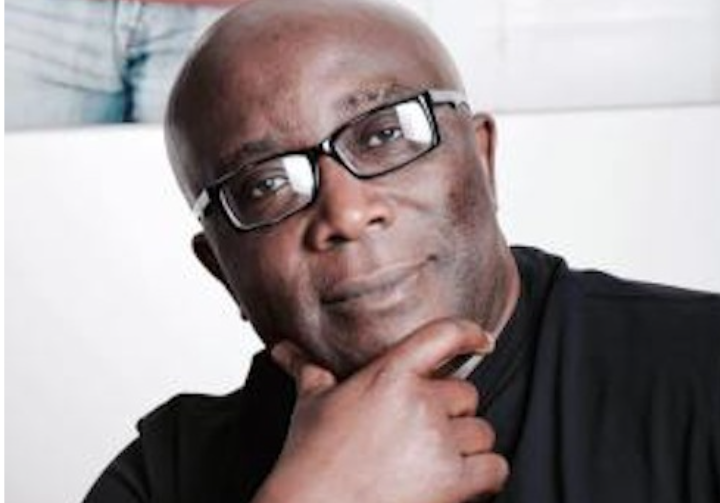
The King’s Anthem – By Chidi Amuta
A carefully choreographed political diversion has just carried the day. In the absence of any tangible results for his first year in office, Mr. Tinubu’s fertile political imagination came up with a potent diversion. A quick ruse of reverting to the old national anthem was the hit score. It would reverberate with the popular audience. People hear the tune of the national anthem and are reminded of their Nigerian nationality. It is music with a compulsive audience.
The presidential political hit squad quickly activated its National Assembly robotic button. In a matter of days, a bill to revert the nation to the old national anthem was rushed through both chambers of the National Assembly. First reading. Second reading. Third reading. Passage by voice vote: the ‘Ayes’ have it! It has to be in time for the planned presidential address to the joint session of the National Assembly to mark both 25 years of unbroken democracy and the first year of the Tinubu presidency. The plot adhered pointedly to the script.
In the typical emerging authoritarian fashion of this presidency, there was no public debate. No debate even in the chambers of the National Assembly. No calls for informed opinion from the public. Even when the Attorney General of the Federation cautioned on the need for public debate and wider public consultation, he was ignored. The lone voice of a female legislator who tried to question the priority status of an anthem change at a time of severe national hardship and insecurity was shouted down by the Speaker.
The National Assembly of a huge nation like Nigeria quickly degenerated into a noisy marionette conclave of nodding jesters. Whatever they all drank, smoked or ate before the joint session had a uniform hallucinatory effect: everybody nodded Yes! The president’s new -old anthem was adopted in what would pass as a bill on a touchy national issue to be made in a legislative microwave oven.
By the time the president emerged to address the assembly, he was heralded with an untidy and inchoate rendition of the re-introduced old anthem. the gathered NASS sang to the tune of the old anthem: “Nigeria, we hail thee”! I watched the lips of the entire gathering. Over three quarters of the legislators hardly mouthed the words of the old anthem. Most of them hardly knew the words.The police band helped them scale through what must have been a harrowing few minutes. The address itself was one of the most pedestrian speeches I have heard on an important national occasion by a president.
The just replaced ‘newer’ anthem has been in place for 48 years. So, most of those in the Assembly must have been toddlers or early teenagers when the old anthem was rested. But Tinubu had previously expressed his personal preference for the old anthem on several occasions. So, we are dealing with a president’s personal wish and preference become law. For most of the members of the National Assembly, what King Tinubu had just gotten them to adopt and resurrect is actually the anthem of their fathers and fore fathers.
I doubt that much thought was given to this anthem gambit. People with any presence of mind would have realized that the 48 years life span of the new anthem captures the age bracket of Nigerian youth. With our median youth age population at 35. As it were, the NASS, in one hurried and thoughtless swing of mood occasioned by the whims and desires of an ambitious president has just usurped and toppled the spirit of an age. But the youth aged 40 and under have known only the new anthem all their lives. They constitute a tidy excess of 75% of our population.
Technically therefore, what the National Assembly has just overthrown is the spirit of an age, the defining anthem of those whom we are waiting for to lead the ation along their dreams. Love or hate it, that anthem was the definition of their nation and their age. They are the ones who went to Lekki Toll Gate to seek a redefinition of the relationship of power and the people. The constitute the majority of the Obidients of the 2023 presidential election who wanted to take back their country from the vice grip of power merchants and political contractors.
The minority political elite who are holding everyone else to ransom in the National Assembly have just rammed their preference of a national anthem down the throats of the rest of us. The muffled debate or some presentations on the reversion to the old anthem by some legislators featured some of the most self -serving displays of outright ignorance that I have ever heard. I was thoroughly ashamed that this untidy conclave of half literate servile minions of power could pass for representatives of the Nigerian people. The arguments were shallow, uninformed, lacking historical consciousness and a basic understanding of our demographics and what it means for our future. The few presentations were based mostly on preconceptions and a priori logic. It was a pitiful straining to make legislative discourse converge on a pre-ordained presidential wish.
It was unbelievable that anyone on the National Assembly floor could argue that the slow, tepid and sleepy tempo of “Nigeria we hail thee” was better than the lively mid -quick tempo of a nation in a hurry captured by “Arise O compatriots!” The latter is a clear clarion call to national service and patriotic solidarity while the former is merely a colonial hymn of wishes dressed in insolent phraseology. Someone in that gathering actually insisted that the retrospective stance of the reversion signified that the present government is forward looking and aspirational. Yet another crowed that the way forward is backwards to the glory days of the past. Nigeria is perhaps the only country that develops backwards while pretending to be striving for a modern future.
The honourables and distinguished persons in the conclave were too busy to arm themselves with dictionaries in spite of taking delivery that morning of a brand new library and resource centre. If they looked at any history books ordictionaries, they could have found out the identity of the scripter of the old anthem, an assumed mistress of the British colonial overlord. They could also have done a quick simple lexical research to unearth the verbal insults in the old anthem.
The verse refers to us as a nation of “tribes and tongues”, an amalgam of mutually incompatible and perennially warring spear and shield -wielding tribesmen! Ours is a “native land” chained to the original innocence of native antiquity! The only way we can be united is to stand in “brotherhood”! at a time in human history when social language has acquired increased gender sensitivity to respect the rights of women! An analysis of the litany of linguistic insults in the old anthem could go on endlessly. I recall that it was a revolt against these atrocious insults that partly led to the adoption of a new anthem which was proudly written by a Nigerian.
There is nothing wrong with a particular set of leaders taking a backward look at national history to see if there are glorious legacies that can help redeem a threatened present. “Bring back America”! “Make America Great Again”! are all expressions of a nostalgia for a past that may have been glorious in some ways.
Let us be fair to our past leaders and founding fathers. There is indeed a lot that can be dredged from our past as a nation to ‘renew hope’. If the craving for the old anthem is a holistic honest nostalgia for our past glory, then I am all for it. But we must also bring back other aspects of our good old days. The old anthem was perhaps a celebration of the euphoria of a nation that set out to be great for all its people. The old order meant the happy days of Chief Obafemi Awolowo’s cocoa kingdom which generated the wealth to develop the old Western Region in education, infrastructure, agriculture and social welfare.
Yes indeed, let us march backwards to the Eastern Region of the Palm oil estates, the Okpara and Azikiwe industrial estates of Port Harcourt, Aba, Umuahia or bring back the Kibut-style farm settlements of the great Eastern Nigeria.
Better still, let us return to the massive groundnut pyramids of the old North, the cotton fields, the peace and tranquility of the expansive farms where herdsmen roamed the fields and did not carry guns and unleash death in their trail.
As a nation, those of us old enough to remember yesterday have a right to be nostalgic. Those who have just taken us back to the old anthem need to realize that that anthem, imperfect as its phraseology may be, was the expression of the spirit of an age and the state of a nation. It was a time when policemen did not carry assault rifles but only truncheons and batons. It was a time in which armed robbery was not part of the vocabulary let alone terrible words like kidnapping, abductions, banditry and ritual killings.
Therefore, devoid of the nobility of the past and a coherent governmental effort to sift from the good old days for the benefit of new facing new challenges, it is futile to reduce nostalgia and retrospection to a mere anthem. We have clear and present dangers and priorities in today’s Nigeria. Sadly, hardly any of them is being addressed by a president that has now prioritized a reversion to the old national anthem into an urgent imperative.
Needless rehashing the obvious urgent pressures on most Nigerians. People are hungry, very hungry. Most people are getting impoverished by the day as a direct result of Tinubu’s thoughtless policies on fuel subsidy and the exchange rate. The burden of insecurity remains largely untouched. As the NASS was entertaining itself with the old anthem, people were being killed and farms sacked in Borno and Yobe states.
For the president to ignore these immediate threats to national life and citizens well being and confer urgency on reversion of national anthem is the height of governmental insensitivity. It is worse. It is an arrogant indifference to the crisis of existence in today’s Nigeria. It is also part of an emerging personality cult.
Mounting immense pressure on the National Assembly to do the biddings of the president on nearly every matter including this anthem matter points us in a dangerous direction. To bend national will at the behest of the president for no justifiable reason is dangerous to consensus building in a democracy. To embark on a project to advance the preferences of any one man at the expense of national consensus is even a worse indication of the emergence of a dangerous personality cult and subterranean authoritarianism.
The signs are everywhere in evidence. We are witnessing the incubation of a creeping authoritarianism given other actions of this president. Two days ahead of the anthem change, the Minister of the FCT inaugurated a major road in Abuja and named it after President Tinubu. A couple of months prior, the governor of Niger state had unilaterally renamed the Minna airport after president Tinubu, ignoring the fact that the same airport has previously been named after an illustrious son of the state. And right after the adoption of the new anthem in the NASS a few days ago, the new library and resource center of the National Assembly was quickly named after Tinubu. From the records of the last one year, these self adulating gestures amount to rewards to Tinubu for unleashing unprecendented hardship on Nigerians. To most Nigerians today, the last one year can be seen as Nigeria’s Anno Horribilis -year of horror- as the late Queen Elizabeth was to characterize 2020 in England, the year of Covid-19 global pandemic.
Ironically, we may be celebrating 25 years of democracy by inadvertently laying the foundations for the antithesis of democracy, a vile demeaning and sickening authoritarianism.
-
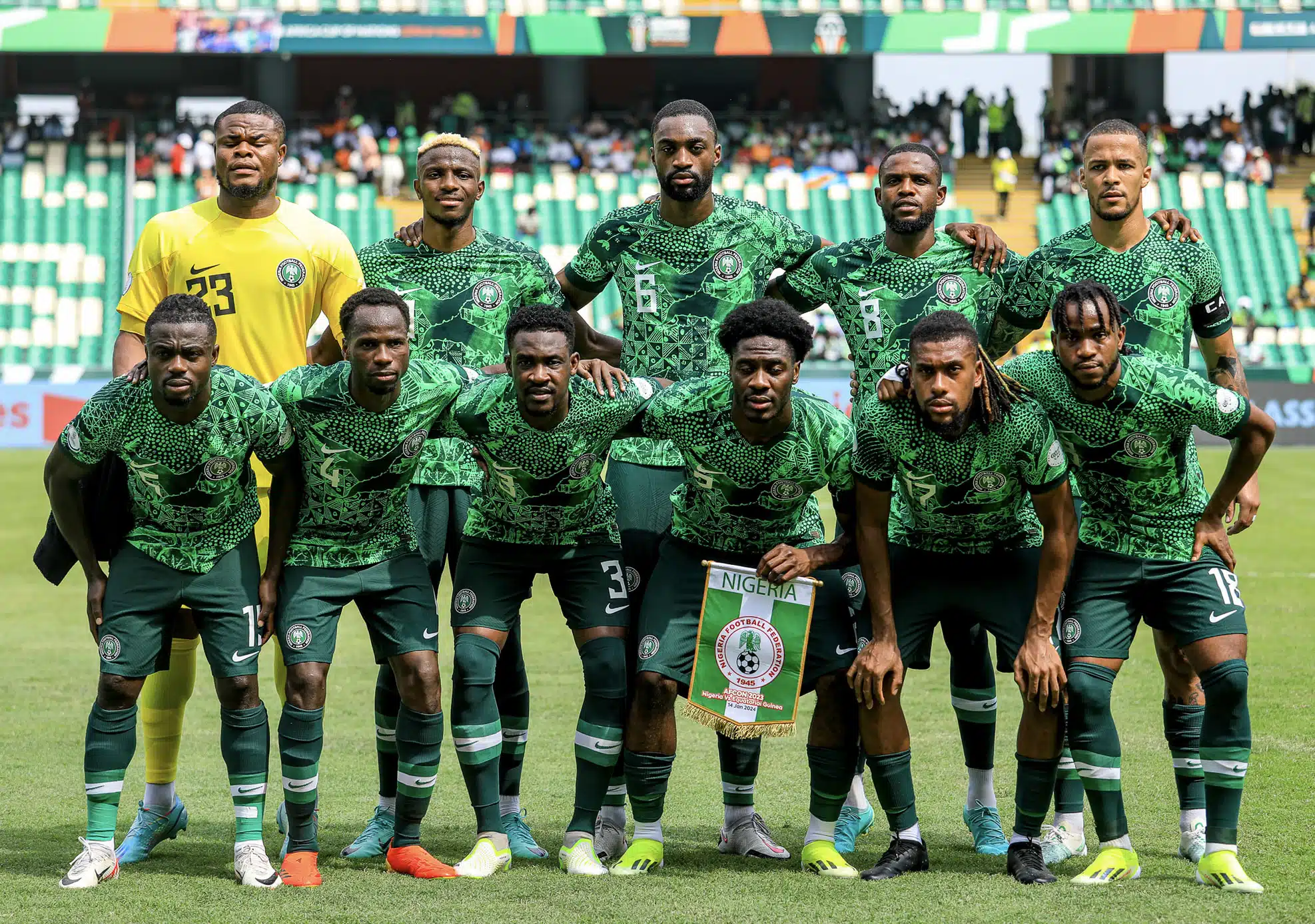
2026 WCQ: Super Eagles players, coaching staff to sing new National Anthem
Sources close to the Super Eagles players and coaching staff say that they are already spending time to practice the newly introduced old National Anthem of Nigeria.
Recall that President Tinubu signed into law the old National Anthem and it has immediately replaced the one formerly in use.
However, Nigerians are still battling to familiarize themselves with the newly introduced Anthem and the Super Eagles players are not also let out.
The Super Eagles players will be hitting training ground as from Monday June 3rd, the camp is expected to have opened in Uyo.
Nigeria’s Super Eagles will slug it out with Bafana Bafana of South Africa on June 7 at the Godswill Akpabio stadium, Uyo before travelling to Abidjan Cote D’Ivoire few days later to confront the Squirrels of Benin Republic in 2026 World Cup qualifiers.
Super Eagles sit third on the group C standing with 2 points after two draws while Rwanda and South Africa occupy the first and second positions respectively.
